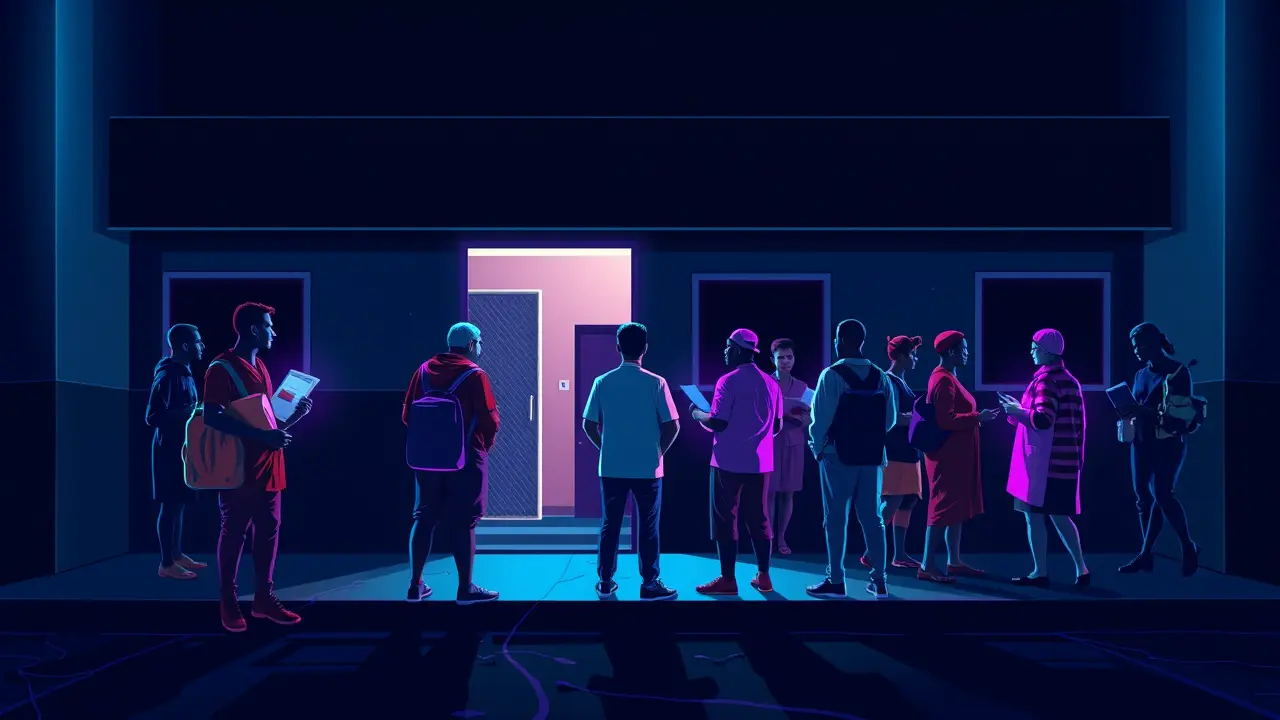Activists Block Foreigners from South African Health Clinics
The scene unfolding outside several South African health clinics is a stark tableau of a deeper, more insidious sickness—one not of the body, but of the social contract. Here, activists, positioning themselves as grassroots guardians of a strained system, are physically blocking foreign nationals, many of them asylum seekers and migrants from neighboring Zimbabwe, Mozambique, and further afield, from accessing primary care, antenatal services, and even emergency treatment.This vigilante gatekeeping is happening with what observers describe as a deafening silence and a palpable lack of push-back from the state, a vacuum of authority that speaks volumes about the political calculus at play. To understand this crisis, one must look beyond the clinic doors and into the heart of South Africa's enduring post-apartheid anxieties.The nation's public healthcare system, a beacon of aspiration enshrined in its progressive constitution, is buckling under the weight of chronic underfunding, corruption scandals that have siphoned off billions, and a massive burden of HIV/AIDS and tuberculosis. For the average South African citizen waiting for hours in a dilapidated clinic, the narrative is easily co-opted: the foreigner is not a fellow human in need but a competitor for an ever-shrinking pool of resources, a convenient scapegoat for governmental failure.This is not a new story; it echoes the xenophobic violence that has sporadically erupted in townships since 2008, where shops were looted and lives lost under the same banner of 'our people first. ' The activists at these clinics are merely weaponizing this sentiment, translating economic frustration into targeted, systemic exclusion.Yet, where is the moral leadership? The South African government, particularly the Department of Health, appears paralyzed, caught between its constitutional obligation to provide healthcare to 'everyone' within its borders and the populist pressure from factions within its own ruling party and opponents like the Economic Freedom Fighters, who have often stoked anti-immigrant rhetoric. This isn't just a policy failure; it's a profound human rights failure, reminiscent of the kinds of exclusionary policies feminist scholars have long critiqued, where the most vulnerable—often women and children—are sacrificed at the altar of political expediency.The personal impact is devastating: pregnant women denied check-ups, diabetics going without insulin, TB patients interrupting their treatment, creating a public health time bomb that respects no nationality. Experts from the African Centre for Migration & Society warn that such actions violate not only South Africa's own National Health Act but also international human rights law and refugee conventions it has ratified.The silence from the state is, therefore, a form of complicity, a quiet endorsement of a dangerous precedent that health care is a privilege of citizenship, not a fundamental right. The long-term consequences are dire, threatening to unravel the very fabric of South Africa's hard-won social cohesion, legitimizing discrimination, and setting a terrifying example for the rest of the continent. The clinic steps have become a battleground, and the state’s inaction is a betrayal of the nation's founding promise of dignity and equality for all who live in it.
It’s quiet here...Start the conversation by leaving the first comment.
